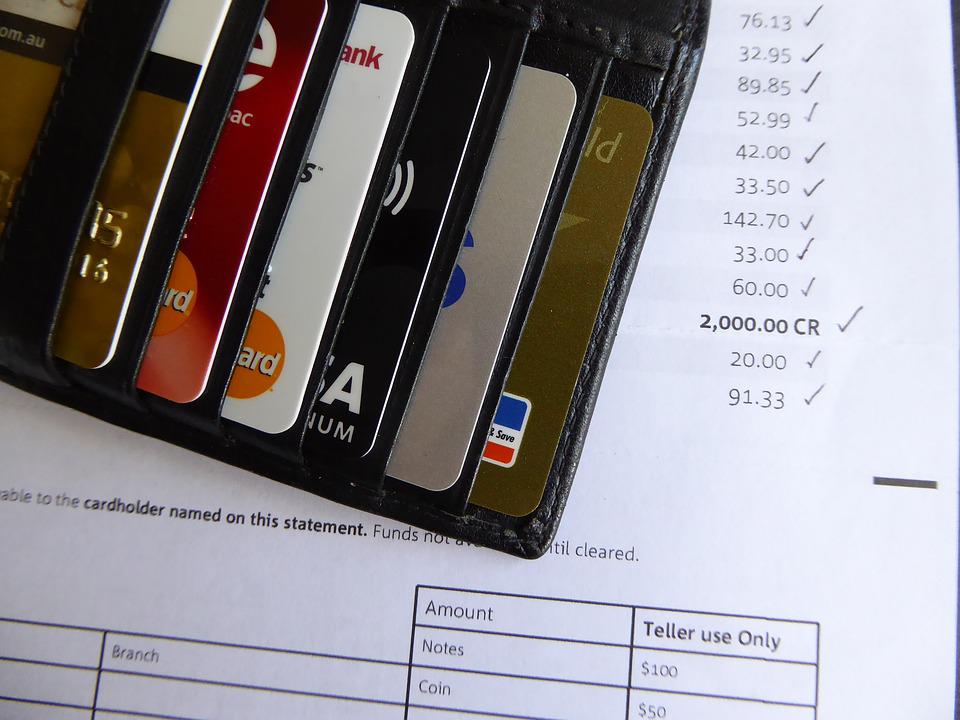
26 Jul What happens if my husband declares bankruptcy but I don’t?
Photo: pixabay.comQ. My husband wants to declare bankruptcy. He has $25,000 of credit card debt in his name alone. We have both of our names on a mortgage and another credit card, but that has no balance. How would his bankruptcy affect my credit?
— Wife
A. You’re smart to be concerned about what your husband’s bankruptcy could mean to your credit.
There’s a lot to consider, though, beyond your credit score.
A non-debtor spouse’s credit score is not going to be affected by the filing of a bankruptcy in their spouse’s name, said Karina Lucid, a bankruptcy attorney with Lucid Law in Bridgewater.
She said there are other items related to your financial picture that could be affected, but not the bankruptcy itself.
“When an individual with consumer debt files for bankruptcy, their Social Security number is linked to the filing, and all their creditors — the people they owe money to — are notified of the bankruptcy filing,” Lucid said. “The person filing for bankruptcy — and only the person filing for bankruptcy — receives both the consequences of that action and the benefit from it.”
The consequence is a temporary drop in their credit score, she said. However, if they have good counsel and have taken care of planning for the bankruptcy process properly, usually that is the only negative consequence, she said.
On the upside, they are granted relief from certain financial obligations, including credit card debt, medical debt, certain kinds of tax debt, most judgments and unsecured personal loans, Lucid said.
“If you do the right things – including making payments on time and not running up new debt – after your bankruptcy case is filed, within six months your credit score will most likely be even better than it was before you filed for bankruptcy, not worse,” she said.
The non-debtor spouse, or the spouse that does not file for bankruptcy, is not liable for the debts that are forgiven through the bankruptcy and receives neither the benefits nor suffers the consequences of the bankruptcy, she said.
“If the couple is current with their mortgage, they can continue making payments and it will not be disrupted,” she said. “If they are behind on their mortgage before the bankruptcy case is filed, then the bankruptcy will not, by itself, cure that deficiency, but it also will not do anything to make it worse.”
Lucid said if your credit utilization and your income-to-debt ratio are healthy, then you are going to maintain a healthy credit score. Your spouse filing for bankruptcy will not change that.
Keep in mind that there are always nuances to a household‘s financial picture, so you should consult an attorney about your particular situation before deciding to file for bankruptcy, Lucid said. If your spouse is considering filing for bankruptcy, you should strongly encourage your spouse to seek legal counsel to ensure that there are no other factors in your family’s financial situation that may cause a different impact, she said.
“But don’t be guided by fear. Get the facts and get educated,” she said. “Facts do not come from the internet, they come from good legal counsel. So get yourself an attorney and get sound advice, and then, don’t be afraid to say goodbye to debt and hello to a financial fresh start.”
Email your questions to Ask@NJMoneyHelp.com.
This story was originally published on July 26. 2022.
NJMoneyHelp.com presents certain general financial planning principles and advice, but should never be viewed as a substitute for obtaining advice from a personal professional advisor who understands your unique individual circumstances.

